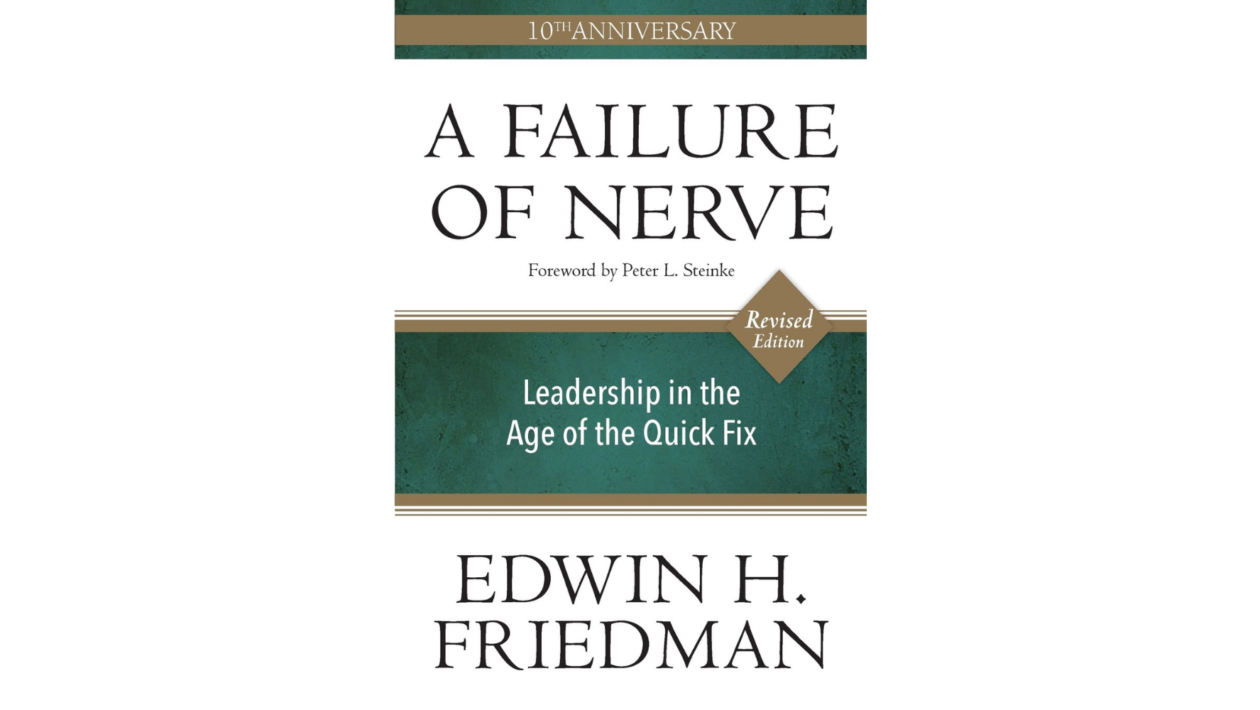By E. H. Friedman
New York, NY: Church Publishing (2017)
Kindle edition
Reviewed by MARCOS F. BOMFIM
As a rabbi and practicing family therapist, E. H. Friedman uses his expertise and experience in therapy to develop a new paradigm for leadership based on the family therapy model. Even though the family therapy model, considering its roots, is an evolutionist construct, it can also be understood with a creationist worldview to understand that the universe is a system composed of various sub-systems.
This book will shock a politically correct reader. It exposes the unpopular thinking of someone who could differentiate himself from society to observe it, validating his conclusions in the therapeutic office. One of the assumptions of this book is that getting closer is not the main issue for all partnerships. On the contrary, it proposes that the ability of self-differentiation is the key to successful leadership, which is the reverse to an ongoing technologic process of massification that tries to nullify any process of individuation. While leaders are unable to lead unless they differentiate themselves, they must be prepared for sabotage and conflict, which are ever-present ingredients to this differentiation process.
Another countercultural assumption of the book is that, while addressing a challenging problem (or individual) in the system, the current trend in society is to lax the rules, lessen the importance of the democratic process, build consensus, reason, and use empathy; however, these processes will never “set limits to the invasiveness of those who lack self-regulation” (loc. 393). Instead, it is by the presence of a “well-differentiated leader” that families and institutions can face their challenges and thrive. Of course, this idea seems almost unthinkable during an age in which popular leaders tend to compromise to preserve peace and maintain their position, and “the very words hierarchy and leadership have become anathema in some circles” (loc. 683), even in church institutions. Thus, the book prepares welldifferentiated leaders to expect strong opposition and solitariness, suggesting that they also learn to love that condition.
The integrity of the leader (not a quality of character, but the ability to differentiate, to be a whole different being) is considered fundamental to prevent the system’s disintegration. So, during the coaching (or therapeutic) process, for instance, the book suggests that the focus should be on helping the leader develop self-differentiation and strength, and not focus on the “pathology or the pathogens” (the troublemakers), who lack self-regulation. By working with the leader and by helping him/her differentiate, the while system would be affected. The leader, viewed as an element of change, is encouraged to keep highlighting the vision, promoting it, instead of wasting time and energy opposing anarchical resistance.
Another important point highlighted by the book is the emotional regression process that is currently taking place in the great American family, making more difficult the task of a leader, be it in a family, secular institution, or church setting. Even though the author is not a Christian, it seems that his religious background helped him to build an interesting analysis of society. This emotional regression, according to him, may be recognized by five components: (1) high reactivity to events and individuals; (2) herding, a process that overpowers differentiation through togetherness, leading all to adapt to the most immature element of the system; (3) blame displacement, that values victimization over one’s own responsibility, external forces rather than resilience (media reports more about victims than about overcomers), and overprotects those who are “easily hurt ‘injustice-collectors’ and slow healers (loc. 2863);” (4) a quick-fix mentality that looks for removing symptoms rather than causes (loc. 1178); and (5) the lack of well-differentiated leadership, that when present, would allow leaders to find non-traditional (sometimes opposite) ways to manage their function (loc. 1180).
This book will be appreciated, especially by leaders who are facing a relational crisis, challenges to their leadership, and an anarchic pressure for minimizing the importance of the democratic process. Parents also will profit from its reading, as the parental leadership process is based on the same principles. It is a mustread book for those who, besides leadership issues, would like to understand a little more about of society in which we live, a time the Bible prophecy refers to as “the last days.”
MARCOS BOMFIM is director of the Stewardship Department of the General Conference of the Seventhday Adventist Church in Silver Spring, MD.

